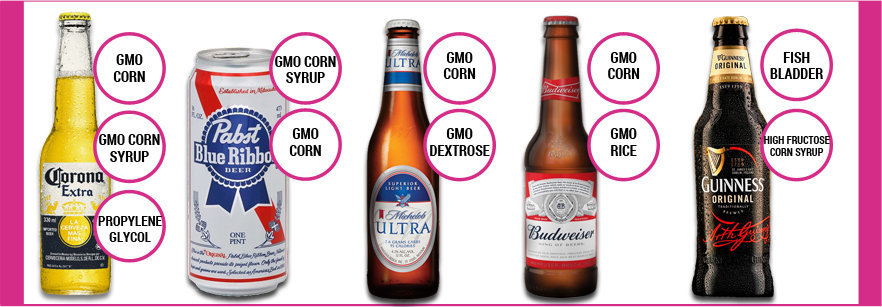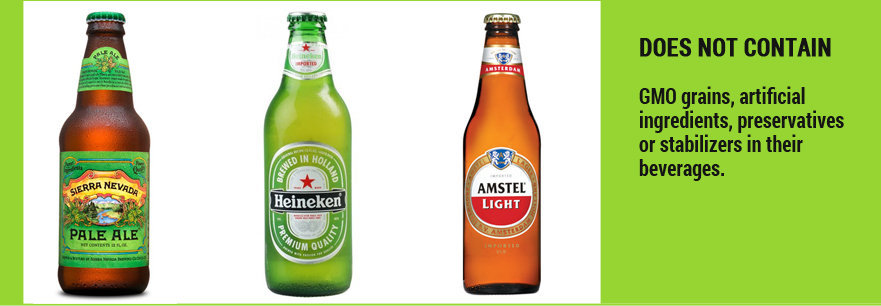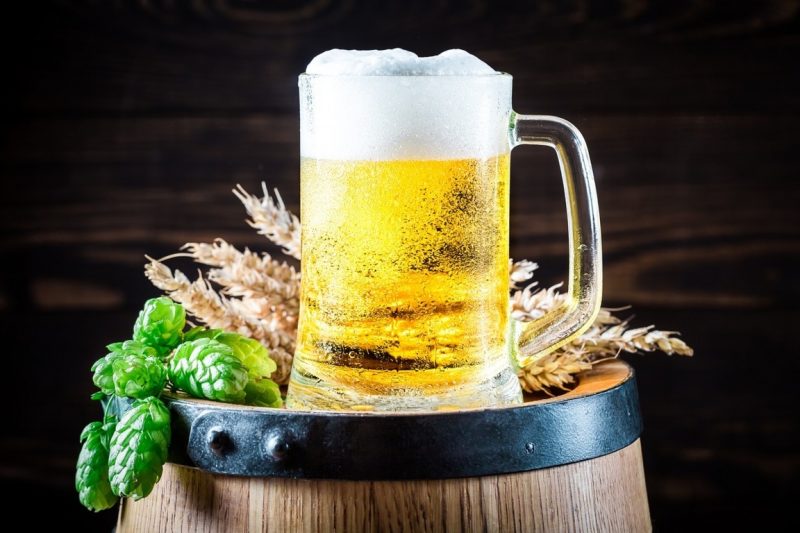 Many people love sitting down with a good brewski while watching a football game or hanging out with friends.
Many people love sitting down with a good brewski while watching a football game or hanging out with friends.
But just like almost every other food or beverage, not all beers are created equal.
So what exactly is in your favorite beer?
You may be surprised to learn a few things about the beer industry that may have you switching to a new favorite.
While it is no secret that beer isn’t exactly the first drink you would reach for if you were wanting a healthy drink, it is still a favorite that even health nuts drink on occasion.
When consumed in very moderate amounts, it may provide some health benefits including minute amounts of B vitamins and potassium.
As a general rule, however, beer could be more damaging than beneficial since most people do not have “just one beer”.
It is often found that beer is thought of as relatively “light” when it comes to the amount of alcohol in one beer.
But this can lull someone into a false belief that they can drink a lot more than they should.
Consuming large amounts of alcohol is known to cause health issues including liver cancer, obesity, cirrhosis, increased risk of high blood pressure, stroke and other cancers.
Why aren’t there ingredient lists on beer labels?
Before breaking down the ingredients, understand something about the alcohol industry
— it’s not regulated by the Food and Drug Administration (FDA).
It is regulated by the Alcohol and Tobacco Tax and Trade Bureau (TTB), a department under the U.S. Department of the Treasury.
This means that the alcohol industry does not have to follow the same laws laid out by the FDA for food and other beverages.
This is why you do not see an ingredient list on beer bottles or containers.
When referencing “beer”, the FDA uses the more general term “malt beverage”.
The definition for “malt beverage” is “a beverage made by the alcoholic fermentation of an infusion or decoctation, or combination of both, in potable brewing water, of malted barley with hops, or their parts, or their products, and with or without other malted cereals, and with or without the addition of unmalted or prepared cereals, other carbohydrate or products prepared therefrom, and with or without the addition of carbon dioxide, and with or without other wholesome products suitable for human food consumption.”
Whew. It’s not exactly the clearest on what can or cannot specifically be put into beer.
To clarify a little, a “malt beverage” like beer falls under the TTB’s jurisdiction while non-malt alcohols are under the FDA which do require ingredient labeling.
Ingredients
Once you realize this, it makes you wonder what really is in your beer bottle or can.
One journalist spent a lot of time contacting popular beer companies in an effort to find out the truth.

She found that many brands, including Corona, Budweiser, Michelob, Guinness, Coors, Pabst and others contain ingredients like GMO corn, caramel coloring, other food colors including Red 40 and Yellow 5, high fructose corn syrup, GMO rice, propylene glycol (found in anti-freeze), monosodium glutamate (MSG), natural flavors (which really aren’t that “natural”) and even an ingredient that comes from a fish’s air bladder.
Doesn’t that sound delicious?
The other problem with not requiring the ingredients to be listed is that there is then no way to know if an allergen is present in the drink.
Many people are allergic to ingredients that may be in beer, but because the ingredients are different from brand to brand, you may not know unless you call the company or have a reaction.
Some allergens include gluten, food coloring, peanut ingredients and lactose.
Interestingly enough, some people who choose higher quality beers have claimed to have minimal or no hangover.
What are the best beers?
Now that you have a list of some of the worst offenders when it comes to beer ingredients, what are some better brands to drink?

According to some research and contacts made by the Food Babe, Sierra Nevada, Heineken and Amstel Light are mainstream beers that do not use GMO grains, artificial ingredients, preservatives or stabilizers in their beverages.
German beers are ones that may have higher quality standards.
The Germans have a beer purity law called “Reinheitsgebot”.
This law means that all German beers may only be produced with a core ingredient list of water, hops, malted barley or wheat and yeast.
Be aware, however, that German beers made in the United States may not necessarily follow this purity standard.
Clearly, finding certified organic beers will greatly reduce the list of unnecessary and possibly harmful ingredients in a beer.
Organic beers will be made with non-GMO ingredients and will not contain chemical additives.
Buying from local, organic farmers is also a plus because you are able to support environmentally friendly farming practices.
Typically, craft and microbrew beers will be better to buy because they tend to be honest about their ingredients.
Many local companies take great pride in their beers and want to utilize the highest quality ingredients for the best taste.
Unfortunately, some large beer companies are buying out craft beer companies and changing the ingredients.
Be aware that this may happen and double-check that your favorite is independently owned.
If I call my favorite beer company, what questions do I ask?
Here are some questions that will help you to determine whether or not you should stick with your current favorite beer company:
- Could you please list all of the ingredients in your beer?
- (If they use “natural flavors”) Could you clarify what your “natural flavors” are?
- Are any ingredients genetically modified?
- Do you use any artificial flavors or colors or caramel coloring?
- What preservatives, clarifying agents or stabilizers are added to your beer during processing?
It is pretty obvious that, just like all other foods and drinks, not all beers are made at the same standards.
Before you choose which beer to sit down with for that football game, make sure you find out as best as you can what the ingredients are so that you can minimize any damaging side-effects that your body may experience.
To protect yourself from these GMO and toxic ingredients (which lead to higher risk of cancer), go to the next page and discover how to boost your immune system –
About the Author:
Emma Deangela is the best selling author of The Alkaline Diet Program and 80/20 Fat Loss. She has helped over tens of thousands of men and women to lose weight and transform their health with sound nutrition advice. Learn how you can lose weight fast – How to lose weight by adding these alkaline foods.
Do you drink beer? What’s your favorite brand?
Please share with your friends this article on Beer – Use any of the social media and email buttons on the left of our website.


Leave a Reply